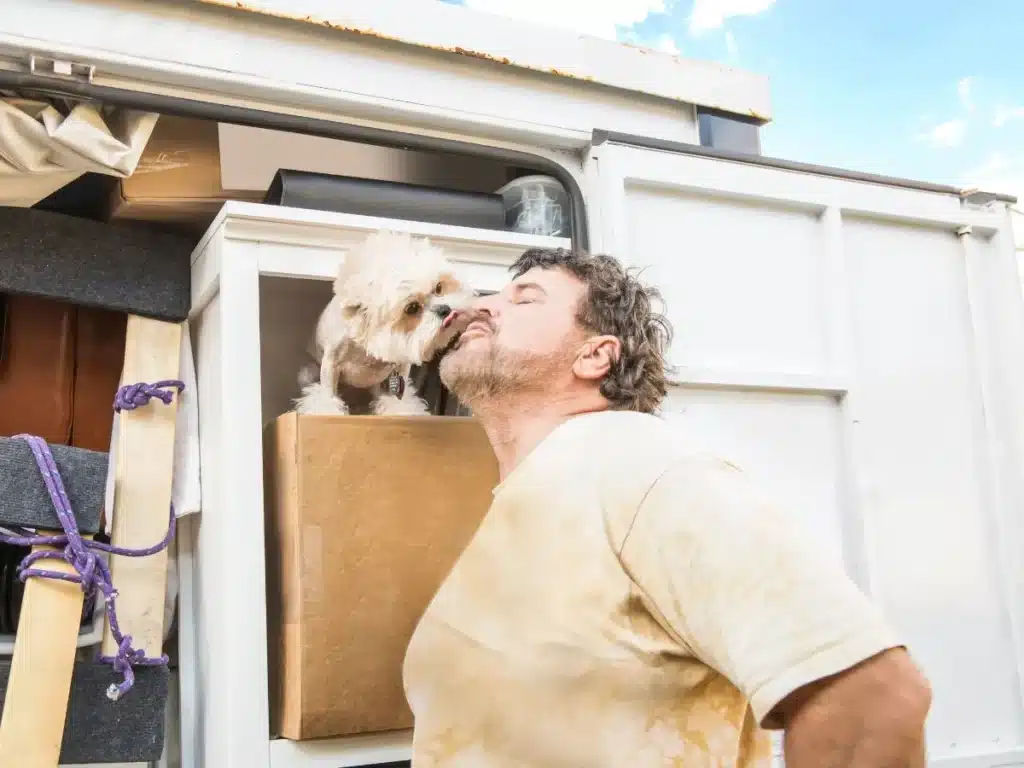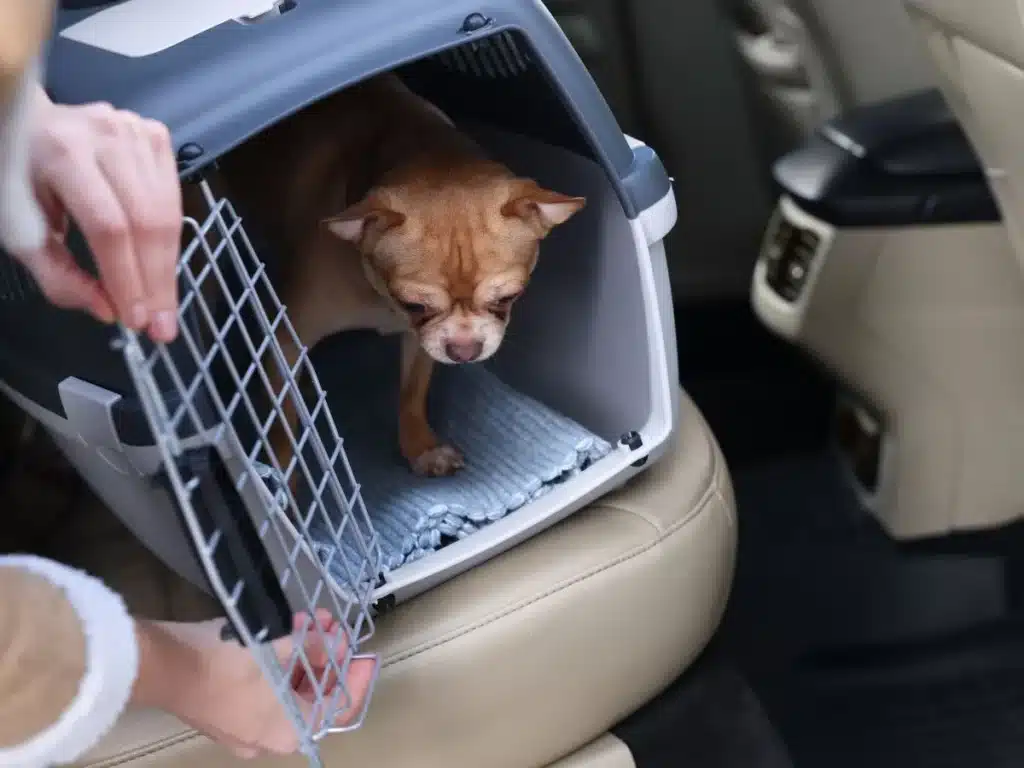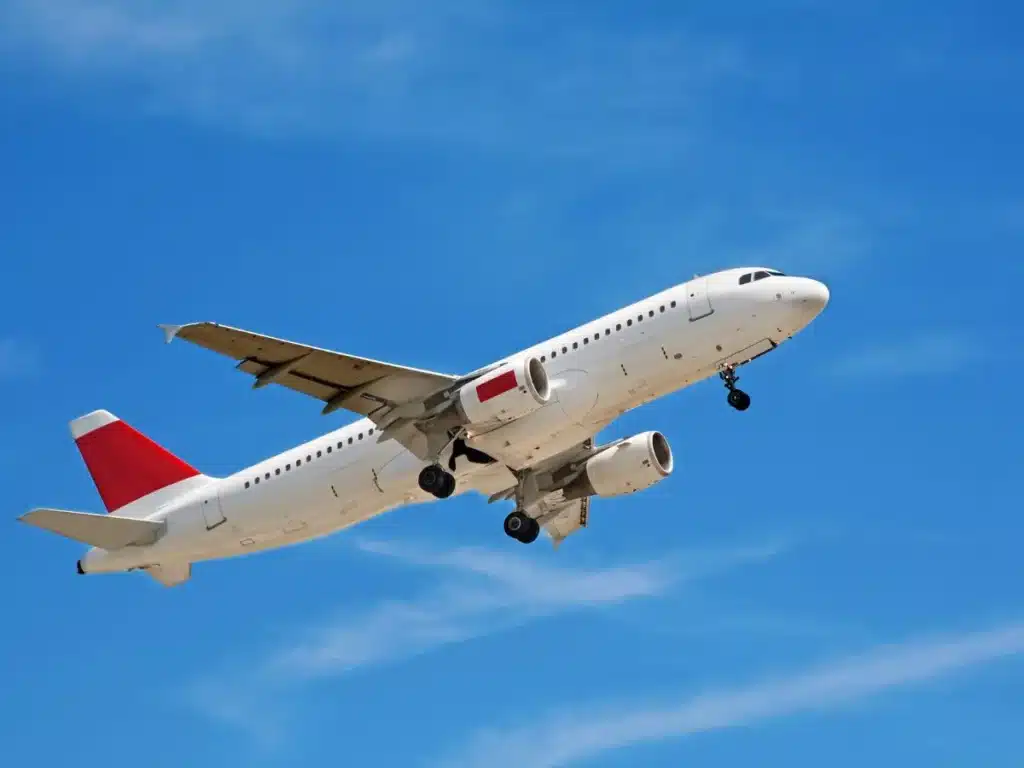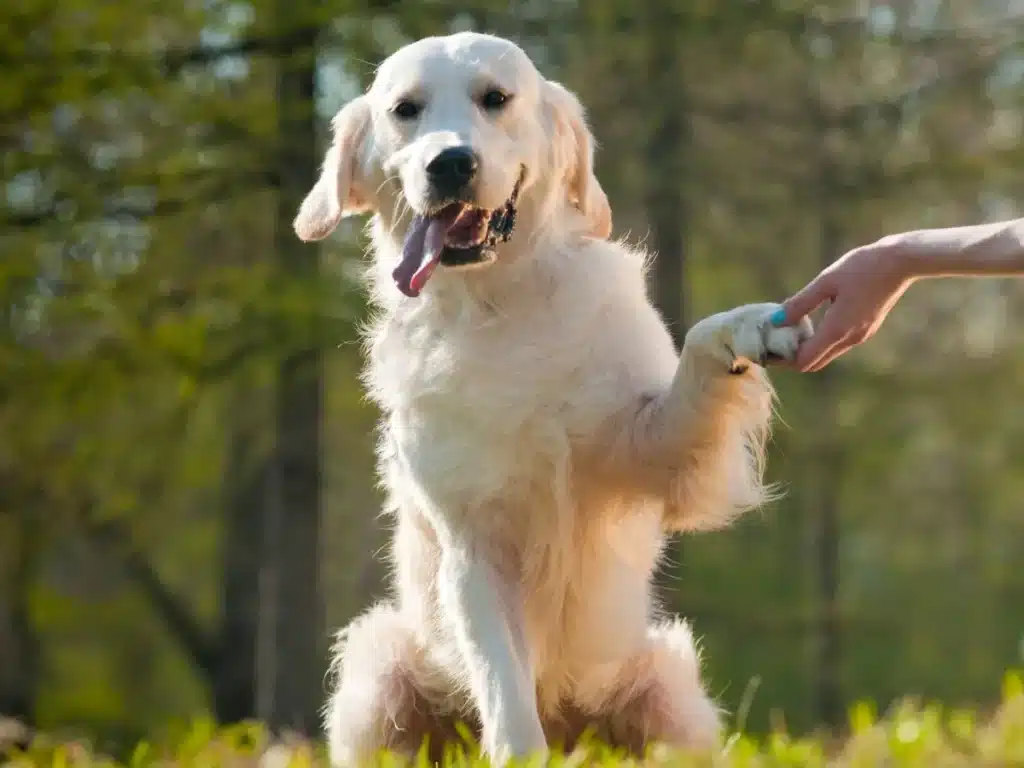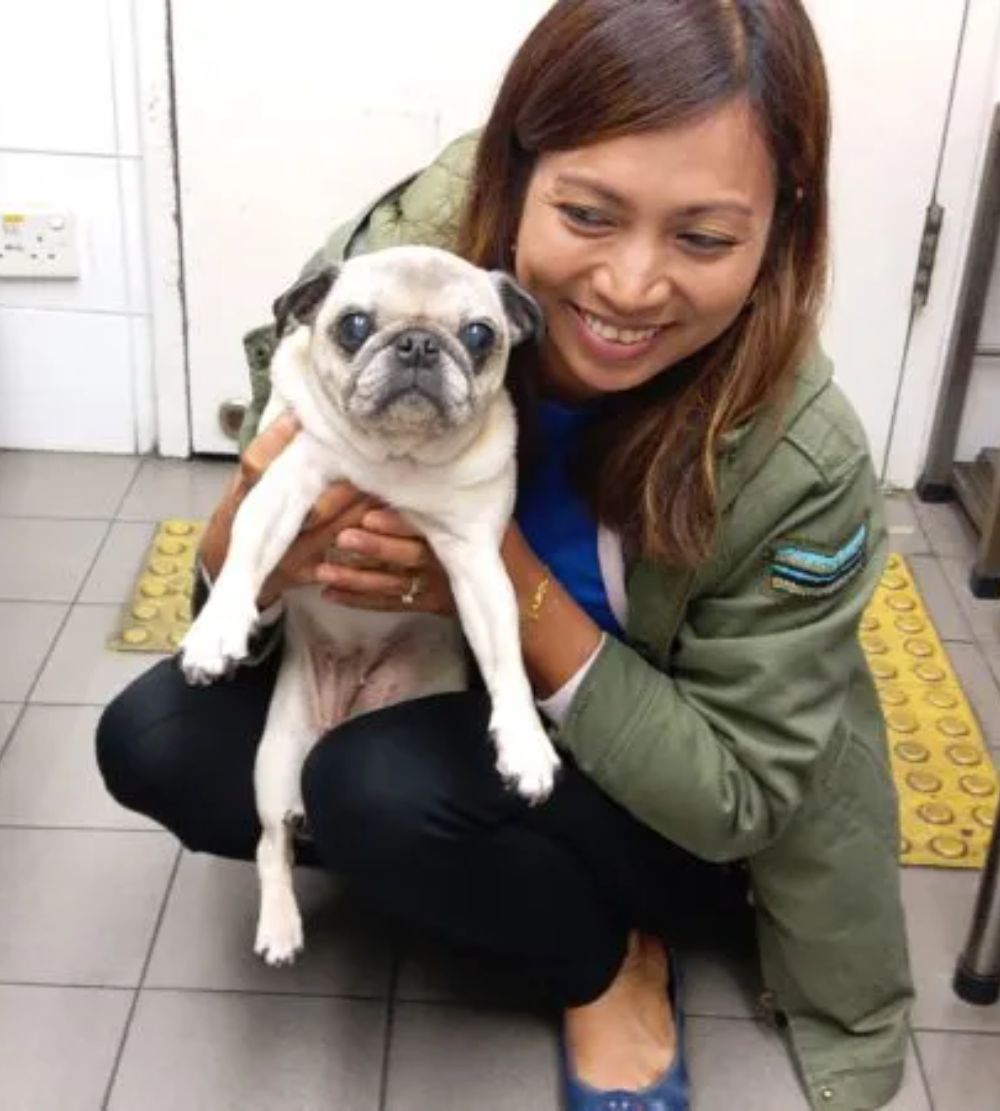Moving pets internationally can be a daunting task, especially when relocating your furry companions from the UK to Singapore. We get it- ensuring the smooth transition of your beloved dog or cat is of utmost importance! In this comprehensive guide, we’ll delve into every aspect of pet relocation to Singapore, addressing key topics for moving pets to Singapore from the UK such as meeting category A pet requirements, choosing the right transport, airline considerations, breed restrictions, settling in, and making the transition smooth for both you and your furry companion.
We speak from experience- we are pet owners too, worked with animals for years, and have done this many times before!
Pet Requirements: Quarantine & Health Regulations
Before embarking on the journey to Singapore, it’s crucial to understand the quarantine and health regulations in place for pets. While Singapore doesn’t impose a quarantine period for pets arriving from the UK, there are specific requirements for pets classified under category A.
Any quarantine requirements for moving a pet to Singapore from UK?
Yes, other countries can have quarantine in Singapore but don’t worry UK doesn’t. That means moving pets to Singapore from UK can be smoother and more friendly than some other destinations!
Singapore has tight regulations to prevent the spread of diseases, but fortunately, pets travelling from the UK to Singapore are free from quarantine if they meet certain criteria, including being microchipped, vaccinated against rabies, and having the necessary documentation and health certificate.
Requirements for Pets from the UK (Category A)
Pets classified under category A must fulfill certain requirements. These include being microchipped for identification purposes, vaccinated against rabies. Additionally, pets must be accompanied by a veterinary health certificate issued by an official veterinarian in the UK.
Documentation and Health Certificates
Obtaining the required documentation and health certificates is a crucial step in the pet relocation process. Ensure that all necessary paperwork, including vaccination records and health certificates, is completed accurately and in accordance with Singaporean regulations to avoid any delays or complications upon arrival. We have partners in London and the UK who can help with this aspect of moving your dogs and cats?
Choosing the Right Transport: Excess vs. Cargo Flights
When transporting your pet to Singapore from UK, you’ll need to decide between excess baggage and cargo flights. Each option has its pros and cons, and it’s essential to consider factors such as the size and breed of your dogs or cats, as well as your own preferences and budget.
Understanding the Differences: Excess and Cargo Flights
Excess baggage allows your pet to travel in the same aircraft as you, (normally still in the hold, just on the same plane) so you will be on the same plane and the price will be based on the physical weight of the crate and pet, they consider your pet as part of your flight ticket as an extra. Cargo flight tickets, on the other hand, involve transporting your pet in actually the same area of the aircraft, but the check-in is done at the cargo terminal not at the passenger terminal desk. And the costs are a bit higher as based on volume weight of the crate’s dimensions. You don’t need to fly the same date which provides some flexibility.
Learn more about excess baggage and cargo flights
Pros and Cons of Each Option
Excess baggage may be more convenient for small pets or those with anxiety issues, if you found an airline that allows in cabin, as they can remain close to you throughout the journey. However, cargo flights is necessary for larger breeds. Consider factors such as size of the crate, ventilation, and ease of handling when making your decision, and do be guided by our pet relocation experts accessed by phone or email!
Crate Training Your Pet
Crate training is a great tip and is best for ensuring comfort during your pet’s travel. Introduce your dog or cat to their travel crate well in advance of the journey, gradually acclimating them to spending time inside it. Place familiar bedding and toys inside the crate to create a sense of security and familiarity for your pet, for the training process.
Airline Considerations: Ensuring Smooth Travel for Your Pet
Different airlines have varying policies and procedures regarding pet transportation. It’s crucial to know that different airlines that operate flights from the UK to Singapore may have completely different policies! Ferndale understands the specific requirements of transporting pets from UK to Singapore and can help you avoid any potential issues.
Airlines’ Policies on Pet Transportation
Some airlines may have restrictions on the types of pets allowed onboard, as well as specific requirements for pet carriers and documentation. We are familiar with the policies of your chosen airline and will help ensure that you comply with all necessary regulations to avoid any last-minute surprises.
Potential Issues with Certain Airlines
While most airlines strive to provide safe and comfortable travel for pets, some may have limitations or restrictions that could affect your travel plans. Be aware some airlines have breed restrictions or seasonal embargoes. For example, brachiocephalic dogs like pugs can only fly with certain airlines at certain times of the year, to ensure they are safe, as some individuals of the breed may have an obstructive airway condition.
Breed Restrictions: Ensuring Compliance with Singaporean Regulations
Singapore has strict regulations regarding pet breeds that are allowed entry into the country. Certain breeds may be banned or subject to additional requirements, such as mandatory muzzling or insurance coverage. Ensure that your dog or cat coming from the UK complies with Singaporean regulations to avoid any complications during the relocation process.
Banned Breeds in Singapore
Check with Ferndale on the list of banned dog breeds in Singapore to determine if your pet is eligible for entry into the country. Dog breeds as Pit Bulls, Rottweilers, and Japanese Tosa are prohibited due to their perceived aggressive tendencies.
Breed-Specific Regulations and Requirements
In addition to breed bans, certain breeds may be subject to specific regulations or requirements, such as mandatory muzzling or insurance coverage. Ensure that you understand and comply with all relevant regulations to facilitate a smooth transition for your pet.
Local Laws and Regulations Regarding Pet Ownership
Ask Ferndale about local laws and regulations regarding pet ownership in Singapore, including leash laws, licensing requirements, and restrictions on pet behavior in public spaces. We can give you tips to ensure that you adhere to all relevant laws and regulations to avoid any legal issues or fines.
Settling In: Finding Exercise and Recreation Spaces for Your Dog in Singapore
Once you’ve arrived in Singapore, it’s essential to help your dog adjust to their new environment. Explore dog parks and pet-friendly areas where your furry friend can exercise and socialize with other dogs. Additionally, consider the climate and make necessary adjustments to ensure your pet stays comfortable and hydrated.
Dog Parks and Pet-Friendly Areas
Singapore boasts a variety of dog parks and pet-friendly spaces where your dog can run, play, and socialize with other dogs. Popular dog parks include Bishan-Ang Mo Kio Park, East Coast Park, and West Coast Park, each offering ample space for dogs to roam and explore.
Acclimating Your Pet to the Climate and Environment
Singapore has a tropical climate, with high temperatures and humidity year-round. Take steps to help your pet acclimate to the climate, such as providing plenty of shade, fresh water, and opportunities for rest and relaxation. Avoid strenuous exercise during the hottest parts of the day and monitor your pet for signs of heat stress or dehydration.
Pet-Friendly Accommodations and Services in Singapore
Singapore offers a range of pet-friendly accommodations, including hotels, serviced apartments, and rental properties that welcome pets. Research pet-friendly establishments and inquire about their policies and amenities to ensure a comfortable stay for both you and your furry companion. Additionally, take advantage of pet services such as grooming, daycare, and veterinary care to keep your dogs or cats healthy and happy during your time in Singapore.
Conclusion: Making the Transition Smooth for You and Your Furry Companion
Moving your dog or cat from the UK to Singapore requires careful planning and consideration of various factors. By understanding category A pet requirements, choosing the right transport, considering airline policies, complying with breed restrictions, and helping your pet settle into their new surroundings, you can ensure a smooth and stress-free transition for both you and your furry companion.
Throughout the relocation process, Ferndale Kennels will prioritize the well-being and comfort of your beloved dog or cat. With proper planning and preparation, you can embark on this new adventure with confidence, knowing that you’ve taken the necessary steps to ensure a safe and successful journey.
Remember, if you’re unsure about any aspect of pet relocation to Singapore from UK, consult with our professional pet relocation service for guidance and assistance.
Frequently Asked Questions
Do pets need to undergo quarantine when entering Singapore from the UK?
No, pets entering Singapore from the UK do not need to undergo quarantine if they meet specific requirements, including being microchipped, vaccinated against rabies, and accompanied by the necessary documentation.
What are the requirements for pets classified under Category A when moving to Singapore?
Pets classified under Category A must be microchipped for identification, vaccinated against rabies, and accompanied by a veterinary health certificate issued by an official veterinarian in the UK.
Are there any age restrictions for pets entering Singapore from the UK?
There are no specific age restrictions for pets entering Singapore from the UK, but older pets may require additional veterinary checks to ensure they are fit for travel.
Are there pet-friendly accommodations available in Singapore?
Yes, Singapore offers a range of pet-friendly accommodations, including hotels, serviced apartments, and rental properties. Research pet-friendly establishments and inquire about their policies and amenities before booking.
What are the costs associated with relocating a pet to Singapore from the United Kingdom?
The costs of relocating a pet to Singapore from the United Kingdom can vary depending on factors such as the chosen transport method, airline fees, veterinary expenses, and any additional services required. Contact Ferndale Kennels for more details!
Can I accompany my pet during the journey to Singapore from UK?
Yes, you can fly on the same plane (with your pet in the hold) during the journey to Singapore from the UK if you choose the excess baggage option. If you opt for a cargo flight booking, it's up to you if you fly the same day or on a different flight (earlier or later). To actually have your pet sit with your pet in-cabin requires an excess baggage option, and the airline needs to accept in-cabin bookings (no direct flights do this to Singapore, although you may be able to find a transit, depends on the individual airline rules and requirements).

